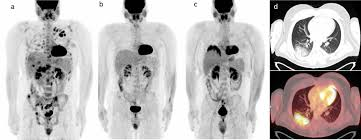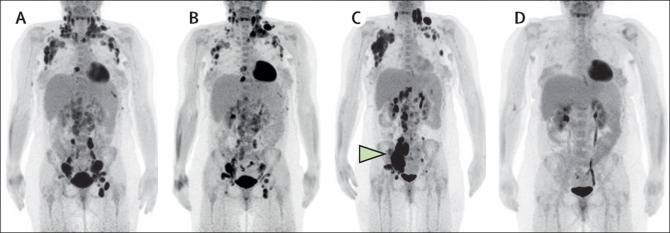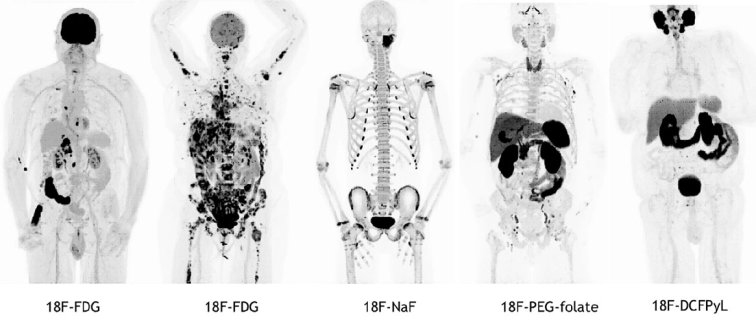Amsterdam led by Prof. Josée Zijlstra in support of implementing PET/CT imaging
methods to better predict disease prognosis of patients with Follicular Lymphoma.
Follicular lymphoma (FL), is the most common type of of low-grade non-Hodgkin lymphoma (NHL). This malignancy of white blood cells originating from the B cell lineage, is notably heterogeneous in nature. Its clinical progression varies widely, ranging from cases requiring a prolonged 'wait and see' approach, to a rapid recurring aggressive form of non-Hodgkin lymphoma which often becomes resistance to chemotherapy.
Given the diverse nature of FL, a more comprehensive assessment can help shape more appropriate treatment plans. A research team at Cancer Center Amsterdam led by Josée Zijlstra is investigating if quantitative PET/CT imaging and analysis can improve disease characterization.
Background
In 2015, Prof. Zijlstra’s research team embarked on a KWF-funded project to investigate the predictive value of interim PET scans during the treatment of diffuse large B-cell lymphoma. They established an extensive database with contributions from the international clinical research consortium, PETRA. This database now consists of more than 5000 PET-CT scans and clinical outcome data from more than 2000 patients.
The research expanded in 2019 with the initiation of quantitative studies on baseline PET/CT scans in patients with aggressive non-Hodgkin lymphoma. This analysis included quantification of metabolic tumor volume, the extent of disease spread, and the heterogeneity of F-fluorodeoxyglucose (FDG) uptake within and across lesions in patients. FDG, a glucose analogue, is utilized in imaging to visualize the metabolic activity of cells, with high-grade lymphomas typically exhibiting elevated FDG uptake. This PET/CT methodology has shown promise in predicting the progression of the disease.
New Research
In the latest funded project, the team will concentrate on predicting the trajectory of Follicular Lymphoma disease, assessing the probability of its transformation into a more aggressive form, and enhancing the evaluation of treatment responses. The goal is to more effectively identify the correct treatment approach for each individual patient. “We aim to determine earlier and more accurately which patients are at the highest risk of an unfavorable prognosis, thereby initiating personalized treatments, such as CAR T-cell therapy, at an earlier stage,” says Prof. Zijlstra.
Project: Quantitative PET scan analysis with radiomics in patients with Follicular lymphoma to predict prognosis of disease
Project leader: Prof. Josée Zijlstra
Project team: Dr. Martijn Heymans (Amsterdam UMC (location VUmc)) - Prof. Ronald Boellaard (Amsterdam UMC (location VUmc)) - Dr. Gerben Zwezerijnen (Amsterdam UMC (location VUmc))
Institute: Amsterdam UMC – Cancer Center Amsterdam (location VUmc)
Start date: July 1, 2024
Cancer type: Blood cancer - Lymphoma (lymphoma) - Non-hodgkin lymphoma
Duration: 48 months
Project budget: € 1,145,810.
For more information contact Prof. Josée Zijlstra.
Funding by:



Representative PET-CT scans
Text and images: Josée Zijlstra. Translation and adaptation of Dutch article on the website of the Dutch Cancer Society by Henri van de Vrugt.

